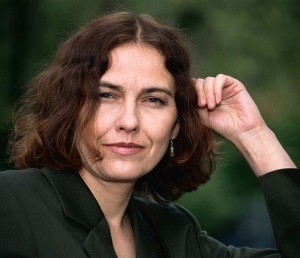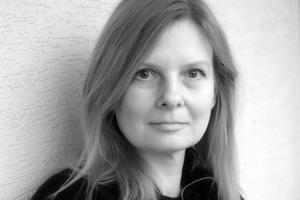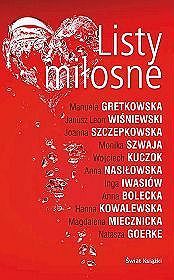
Authors

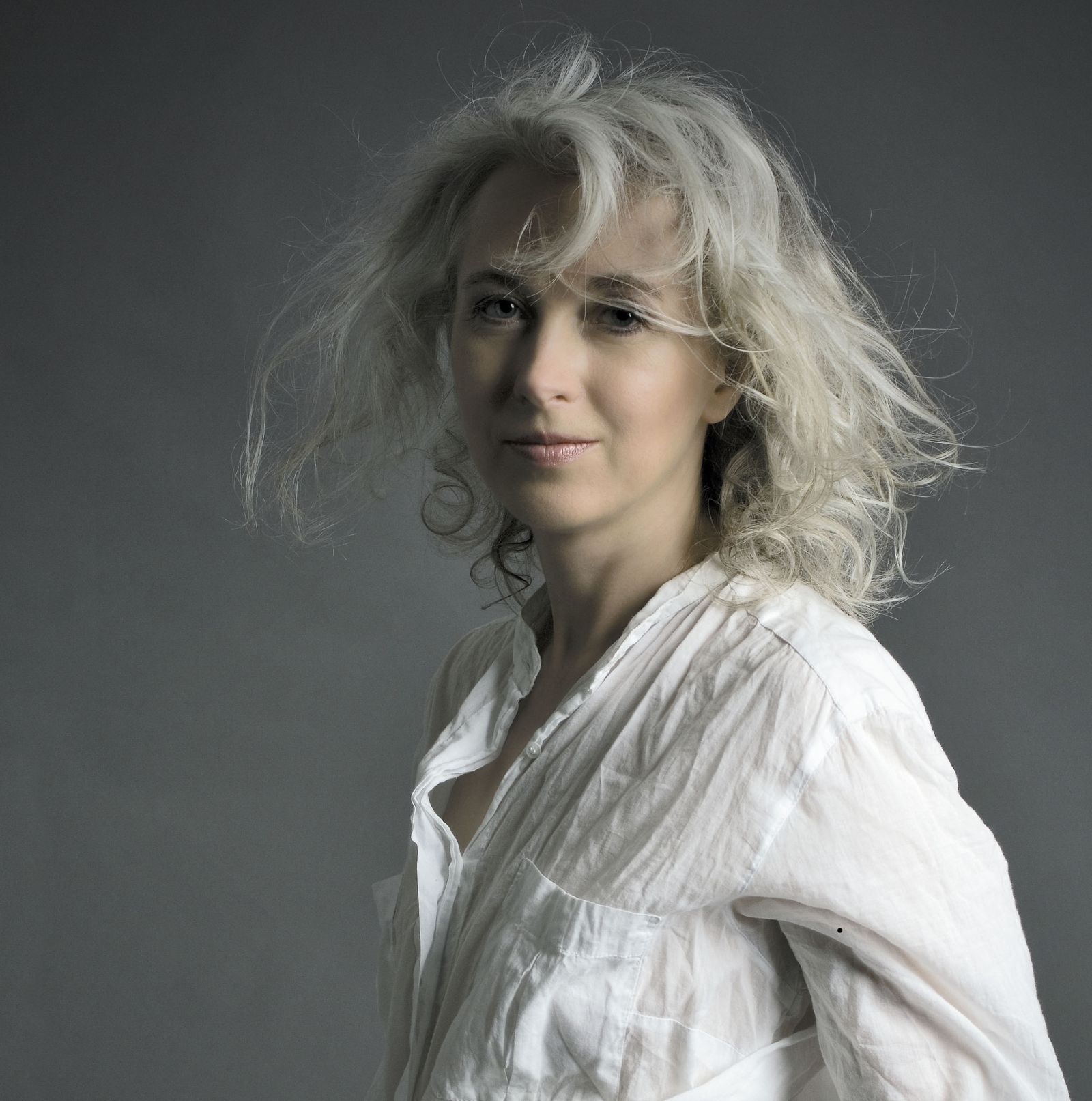
Gretkowska studied philosophy at the Jagiellonian University in Kraków. In 1988 she left Poland to live in Paris, where she studied anthropology at École des hautes études en sciences sociales. It was France where she wrote her first short stories. Gretkowska's literary debut was the novel We Are Immigrants Here (My zdies' emigranty) (1991), in which she ironically described the experiences of the young generation leaving Poland. Gretkowska's next three books described the life of a modern artistic-intellectual bohemian living in France: Paris Tarot (1993), Metaphysical Cabaret (1994), and Textbook for people. Skull: The First and Last Volume (1996) connects gnosis, kabbala, the character of Mary Magdalene and the skull motif in global culture. In this period, the writer earned the title of "scandalist" and "postmodernist." Manuela Gretkowska's prose eschewed grandiose language, more similar to the ease and austerity of the essay. In 1996, Gretkowska wrote a screenplay for the Andrzej Żuławski film Szamanka (She-Shaman). In 1997, Gretkowska moved to Sweden, where she published several collected stories in the book Namiętnik (The Passionate One) (1998), notes from her world travels in Światowidz (World-View) (1998), and her columns, under the collective title Silikon (Silicon) (2000). She also co-wrote the screenplay for the first season of the TV series Miasteczko (Small Town) (2000). Gretkowska's newest work is more personal, almost intimiate prose. Polka (Polish woman) (2001) was the writer's pregnancy journal, while Europejka (European Woman) (2004) presents a humorous view of a changing Poland through the eyes of Gretkowska the intellectual. In 2003 the author, together with her partner Piotr Pietucha wrote Scenes from Extramarital Life.

Janusz Leon Wiśniewski (ur. 18 sierpnia 1954 w Toruniu) – naukowiec i pisarz polski, magister fizyki (Uniwersytet Mikołaja Kopernika), magister ekonomii (Uniwersytet Mikołaja Kopernika), doktor informatyki (Politechnika Warszawska), doktor habilitowany chemii (Politechnika Łódzka). Wiśniewski pracował w latach 1979–1987 w Ogólnouczelnianym Ośrodku Obliczeniowym UMK. Na stałe mieszka we Frankfurcie nad Menem, gdzie pracuje w międzynarodowej firmie informatycznej zajmującej się tworzeniem oprogramowania dla chemików. Współautor pierwszego w świecie programu komputerowego AutoNom do automatycznego tworzenia systematycznych nazw organicznych związków chemicznych na podstawie ich wzorów strukturalnych. W latach 1999–2007 pracował na stanowisku profesora nadzwyczajnego w Pomorskiej Akademii Pedagogicznej w Słupsku. Ojciec dwóch córek: Joanny i Adrianny. Jako pisarz zadebiutował w roku 2001 powieścią S@motność w Sieci, na podstawie której powstał film oraz serial telewizyjny wyprodukowany przez TVP. Kinowa premiera filmu odbyła się 7 września 2006 roku w Warszawie. Film na nośniku DVD dostępny w Polsce od 5 grudnia 2006 roku. Teatr Baltijskij Dom w St. Petersburgu w Rosji zaadaptował i wystawił spektakl na podstawie S@motności w Sieci (premiera 20 lutego 2009). S@motność w Sieci, Molekuły emocji i Bikini ukazały się w Polsce także w postaci książek mówionych. W 2002 roku wydał Martynę – nowelę napisaną wspólnie z internautami. Książka składa się z trzech opowiadań o losach młodej studentki i grona jej przyjaciół. Początki każdego z opowiadań zostały napisane przez Wiśniewskiego. Stały się punktem wyjścia i inspiracją dla dalszych poczynań tysięcy internautów. Pisarz spośród nadesłanych propozycji wybrał najlepsze jego zdaniem zakończenia. Zostały one dołączone do opowiadania i razem wydane. Pierwszy nakład książki to 35 tysięcy egzemplarzy. Tłumaczenia jego książek jak dotychczas ukazały się w Rosji, Chorwacji, Czechach, na Ukrainie, w Bułgarii, Albanii, Wietnamie i na Litwie. Jest także stałym felietonistą miesięcznika Pani. Książki: Intymna teoria względności, Molekuły emocji i Sceny z życia za ścianą są zbiorami tekstów drukowanych na łamach tego czasopisma. Został uhonorowany w Alei Gwiazd w swym rodzinnym mieście Toruniu (gdzie się uczył i mieszkał) i gdzie na Rynku Staromiejskim odsłonił czwartą z serii "Katarzynek" - podpisów słynnych torunian.
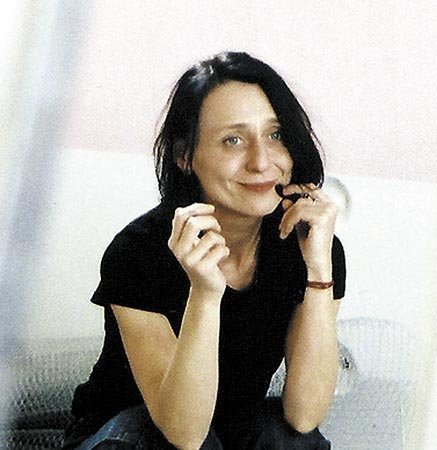
Natasza Goerke was born in Poznan in 1960. She studied Polish at Mickiewicz University in Poznan and Oriental Languages at Jagiellonian University in Krakow. She has had four books published in Polish (her latest was nominated for the prestigious Nike Prize) and collections in German, Slovak, and Croatian translation. In addition, her stories have appeared in numerous magazines and anthologies both in Poland and in the Polish emigre press as well as in translation, including The Eagle and the Crow (Serpent's Tail, 1996), an anthology of contemporary Polish literature. In the mid-80s she emigrated from Poland. After having lived for a time in Asia, she took up residence in Germany and now lives in Hamburg. In 1993 she received the Czas Kultury Prize, and in 1995 she was awarded a six-month stipendium at the highly regarded Akademie Schloss Solitude outside of Stuttgart. (from http://www.twistedspoon.com/goerke.html)
